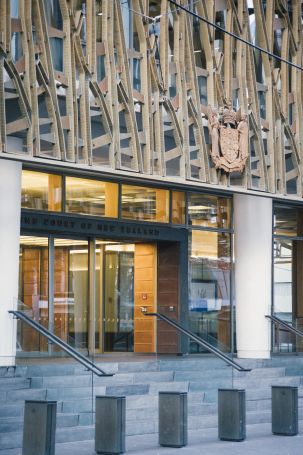Non-compliance with the Guidelines for Judicial Conduct in relation to social contact between lawyers and the judiciary does not necessarily comprise apparent bias, the Supreme Court has said.
The Supreme Court has dismissed an application for recall of its judgment of 11 April 2019, Craig v Williams [2019] NZSC 38, [2019] 1 NZLR 457.
In a decision released on 25 June ([2019] NZSC 60), the court considered an application for recall which related to a sailing trip undertaken by senior trial counsel for the unsuccessful appellant in the April 2019 decision and one of the members of the Supreme Court bench who had heard the matter.

After the hearing on 4 and 5 September 2018, Stephen Mills QC - counsel for Mr Craig - and Justice Terence Arnold planned a sailing trip. They were to be accompanied by retired judge Tony Randerson QC.
As the decision in Craig v Williams was still to be delivered, Mr Mills contacted Peter McKnight, counsel for Jordan Williams, on 25 January 2019. Mr Mills inquired about Mr Williams' attitude to the trip, which had been planned for some time.
In its recall decision, the Supreme Court outlines the result: "[3] Mr McKnight further deposes he discussed the matter with Mr Williams who was troubled by the request but 'in the end', Mr McKnight says 'it was felt ... only one answer' could be given. Mr Williams in his affidavit explains his discomfort at being put in the position he was and says he 'felt compelled to not object'."
Mr McKnight got back to Mr Mills. He said his client had some concerns, but offered no opposition "after careful discussion". He noted his belief that Justice Arnold would not discuss the case while it was reserved and that Mr Mills had given a very clear undertaking that he would not do so either.
Interestingly, neither Mr McKnight nor Mr Williams appear to have been aware of the Guidelines for Judicial Conduct.
The lawyer, the judge and the former judge went off on their sailing trip. On 11 April 2019 the Supreme Court delivered its decision. By a majority it allowed Colin Craig's appeal and ordered a retrial, and dismissed Mr Williams' cross-appeal. Justice Arnold was one of the three judges in the majority.
The Supreme Court's recall decision says "[1] ... A minority ... while agreeing with the majority the jury had been misdirected, did not consider there was a risk of a miscarriage of justice. In doing so, the minority placed some weight on the failure of Mr Mills QC, trial counsel for Mr Craig, to object to the summing up at trial."
Guidelines provide guidance
The Court notes that the Guidelines for Judicial Conduct are intended to provide guidance.
"[13] The provision from the Guidelines relevant to this application recognises that there is a 'tradition' in New Zealand of social contact between bench and bar but emphasises the need for '[c]are … to avoid direct social contact with practitioners who are engaged in current cases before the judge'."
It says whether an appropriate level of care has been adopted in a particular case will generally be a factual inquiry.
"[14] ... In terms of the present application, where what is in issue is post-hearing conduct, it is both relevant and significant that Mr Williams’ views on what was proposed were sought and that Mr Williams did not object to what was proposed. Moreover, the decision not to object was a considered one, expressed after conferring with his lawyer. We see no reason why a party could not consent, so long as it is informed, to such contact."
The events to which Mr Williams consented were what actually occurred and in accordance with the conditions stipulated by Mr McKnight. The Court says this is not a situation where there was confusion as to what was proposed. The sailing trip went as planned and discussed. There was no evidence that any discussion about the appeal took place.
The Court saw nothing in the fact that neither Mr McKnight nor Mr Williams were aware of the Guidelines. They are publicly available (at [16]).
The Court found force in a submission on behalf of Mr Craig that the delay in raising the matter was "both tactical and disqualifying". It said (at [18] that the reason advanced for the delay - lack of knowledge of the Guidelines was not relevant.
